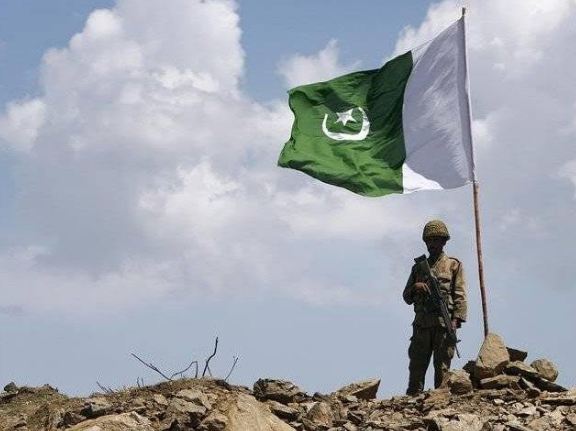By Muhammad Mohsin Iqbal
In the early hours of May 7, 2025, the world witnessed an extraordinary demonstration of national will, military discipline, technological prowess, and divine favor when Pakistan decisively repelled Indian aggression in a conflict that lasted less than twenty-four hours but reshaped strategic thinking in South Asia. What unfolded was not just a military encounter—it was a moment in history where truth stood against deception, preparation against arrogance, and resolve against recklessness. The brief war became a symbol of Pakistan’s supremacy, not only in conventional defense but in the cyber domain as well.

The events began when Indian forces, encouraged by their political leadership and overconfidence in their numerical strength, initiated a series of strikes across the Line of Control, particularly targeting civilian areas in Azad Jammu & Kashmir. However, what India failed to understand was that Pakistan was no longer a country it could test with impunity. Within minutes of the first assault, the Pakistan Armed Forces activated their defense mechanisms, initiating a swift and calculated response. Air, land, and naval units moved in complete harmony, proving that Pakistan’s defense doctrine was not based merely on reaction, but on preparation, precision, and deterrence.
Yet, what surprised the global observers and left Indian command structures in disarray was Pakistan’s unprecedented cyber dominance. The Inter-Services Intelligence and Pakistan’s Cyber Command had, in preceding months, developed capabilities to penetrate India’s most critical infrastructure. As Indian jets were airborne, many of their communication networks failed. Radar systems were rendered blind. Indian naval assets lost GPS navigation, and their missile targeting systems misfired or shut down. Major power grids in Delhi, Mumbai, and military hubs such as Pathankot and Ambala collapsed under massive cyber breaches. Even India’s media broadcasting systems were hijacked, displaying messages of peace from Pakistan, highlighting its unwillingness for war but preparedness for defense.
This surgical dismantling of India’s war machine without a single soldier crossing the border became a historic milestone in the evolution of hybrid warfare. The Indian Parliament, in an emergency session on May 8, was forced to acknowledge the scale of the damage. Prime Minister Narendra Modi, under immense pressure from global leaders and domestic outrage, admitted that India’s offensive miscalculated Pakistan’s strength. International media—from Washington Post to Al Jazeera, from BBC to Tokyo’s NHK—hailed Pakistan’s performance not only as a military victory but as a demonstration of national unity and technological maturity. Think tanks across the globe published immediate analyses noting that Pakistan had emerged as a “regional cyber superpower,” and its war strategy could serve as a case study for military academies worldwide.
It was not just force and intelligence that led to Pakistan’s supremacy, but also the moral and spiritual strength embedded in the belief of its people and leadership. The entire nation stood in prayer, unshaken by the threat, trusting in Allah’s promise in the Holy Quran: “And how many times has a small group overcome a large group by the will of Allah. And Allah is with the patient.” (Surah Al-Baqarah, 2:249). This verse echoed in the hearts of every Pakistani soldier and citizen alike, reminding them that victory is never solely determined by numbers or power, but by faith, unity, and justice.
The Prophet Muhammad (peace be upon him) once said, “Do not wish to meet the enemy in battle, but when you meet them, be firm and patient.” (Sahih Bukhari). Pakistan did not desire war, nor did it initiate aggression. Its doctrine remained consistent; peace with dignity, and defense with might. But when the aggression was imposed, it responded not with emotion, but with strategic brilliance.
China, Russia, Turkey, Saudi Arabia, Iran, and even Western countries acknowledged that Pakistan acted not only with competence but with restraint, avoiding civilian harm and preserving regional stability. Many compared Pakistan’s handling of the war to the defensive precision seen in modern military alliances, but with the moral clarity that emerges only from a just cause.
More importantly, the unity of the Pakistani nation, from the mountains of Gilgit to the coasts of Gwadar, was exemplary. In every mosque, church, temple, and home, people prayed together. Civil-military coordination was seamless. Media acted responsibly. The parliament stood united. Political differences were set aside. That was perhaps the greatest victory—one that no missile or malware could achieve.
India’s loss was not just in destroyed systems or failed missions; it was a blow to its strategic credibility. With millions of dollars lost in defense technology that failed, international arms markets began reconsidering their sales to India. Insurers and investors saw the vulnerability of a country that could not protect its own command systems. Meanwhile, Pakistan’s defense exports, software development sector, and global image all received a boost.
No doubt, May 7, 2025, will be remembered not just as a date of military supremacy, but as a day when Pakistan’s spirit, science, and sincerity combined to defend its sovereignty. It was a moment when the blood of martyrs, the prayers of the nation, and the vision of its founding fathers all aligned to echo a timeless truth: “Indeed, the party of Allah—they will be the successful.” (Surah Al-Mujadila, 58:22).

















